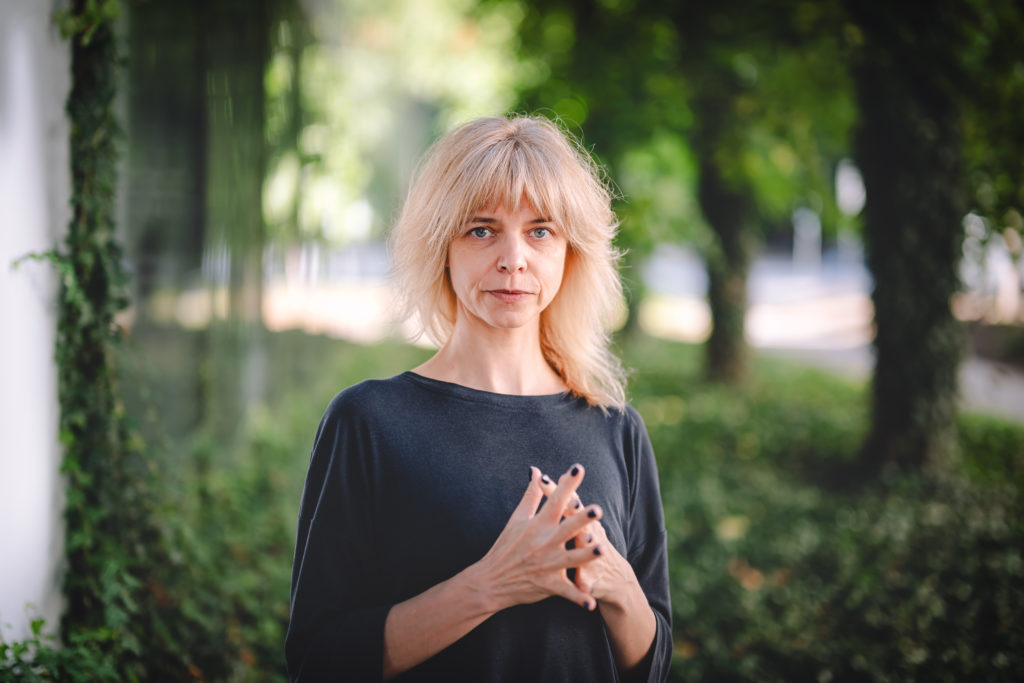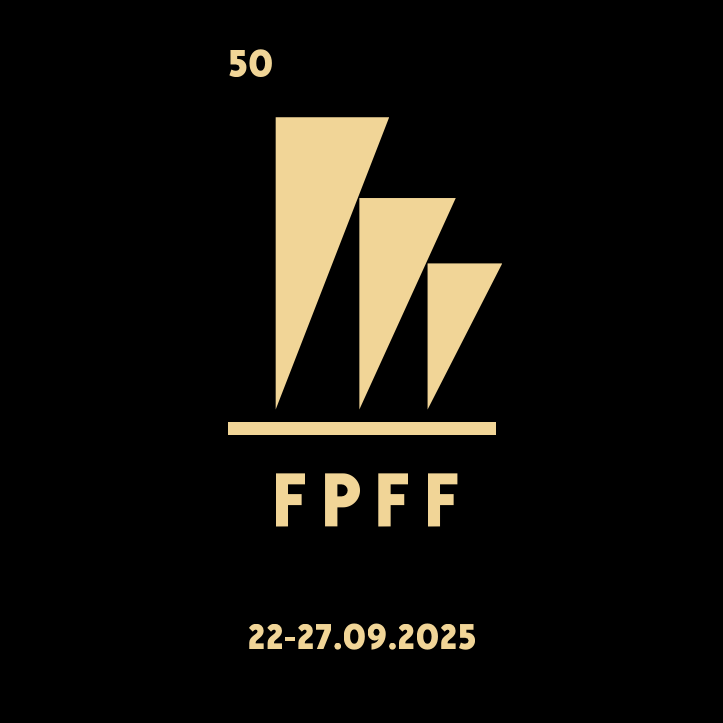The Festival is a perfect place for a discussion – an interview with Joanna Łapińska

photo Tomek Kamiński
The reality of how the Polish cinema meets its audience is changing – an interview with Joanna Łapińska, the Artistic Director of the Polish Film Festival in Gdynia.
Mateusz Demski
Mateusz Demski: It’s your first time as an artistic director in Gdynia, but hardly the first time working with the programme or organisation of such an event. What have you learnt throughout all these years?
Joanna Łapińska: Participating in the creation of film events in Poland for over 20 years has shown me that being a programmer or a selector for a film festival is about the balance of what I myself find fascinating in cinema, what are the audience’s expectations, and the event’s profile. So I listen carefully, watch closely, talk to everyone, who participates in the festival, and I try to find the perfect balance. While working with similar events, I often invited films I wasn’t a fan of myself, but I knew it’s something our audience want to see for various reasons. As a programmer, you have to understand the needs of others.
However, the festival in Gdynia is unique, different from the ones you’ve worked on before. Until now, you could draw from cinematography from all around the world. This time you’re strictly limited to a choice of Polish cinema.
I’ll go ahead and add another difference between the festival in Gdynia and any other event. Many elements of the festival are dictated by the rules and regulations – so my freedom as a programmer is somewhat limited. Let’s take the Main Competition. I select twelve titles, another four are added by the Organising Committee and that’s how we end up with the sixteen competitors. When it comes to the whole programme, I prepare it, propose it, but in the end I need the Committee’s acceptance. I’ve never worked like that. Any other event let me have the final word. The other thig is what you said – I follow the Polish cinema. I choose from what’s there and I try to showcase different facets of this cinema in the programme.
Seeing the international success of Polish directors, one might say that the Polish cinema is headed in the right direction and is experiencing a rebirth.
It’s been in a good place for a while now. After a weaker period, the Polish cinema has secured its place in the international market. And there’s quite a variety of it as well. Many topics concerning the Polish cinema deserves some attention right now. It’ll be made known this year at the festival, which is a perfect place for a discussion about the state of the Polish cinema. Gdynia has two important qualities: there’s a sizeable and loyal audience, and it’s a festival deeply rooted in the Polish market. That’s why, besides the screenings, Gdynia Industry is so important here with all the discussions, meetings, events that are a part of it.
There’s a heated debate concerning the future of the industry going on. Hollywood has been overtaken by the screenwriters’ strike, people are talking about the dangers of artificial intelligence and about the policies of streaming services. It’s beginning to affect us as well.
I wouldn’t say it’s beginning to, it very much already affects us. The Polish industry doesn’t exist in a vacuum and can’t be considered outside of global issues. Our problems also affect foreign markets. The ones most relevant will be addressed at Gdynia Industry – whether at the artificial intelligence panel, or during the discussion about different forms of distribution. Reaching the viewer is no more just about starting with a theatrical release. There are many films that reach their audience through the streaming services. The reality of how the Polish cinema meets its audience is changing. There are several problems with that, and we aren’t silent about them. For example, people did return to cinemas after the pandemic, but not for the Polish films. In our broad discussion about distribution, we’ll ask ourselves, where do we want to find ourselves in five years time. We’ll look into how the world’s changing and which processes are unstoppable, which we can profit from, and where to seek solutions and good practices.
Do you have a vision of the Polish cinema in five years time?
I can remember many conversations starting with this question during the last twenty years period. Often it turned out that whatever we tried to name, assume, predict – with less or more certainty – didn’t come to pass and the world managed to surprise us. So I’m not trying to call what the future will be in a few years. The market’s changing, many factors create a bigger picture. It’s like reading tea leaves. I do believe the good run of the Polish cinema at international festivals will continue. But will anything exceptional be a part of that? I’m not guessing.
Is the festival in Gdynia changing?
It does, naturally. It evolves, and not only when a new person assumes the position I’m currently holding. Lets look at the last years’ programme. The changes are a regular thing – take the previous edition as an example – it’s the first time the Janusz Korczak Golden Lion Cubs award was present. The festival observes the audience’s reactions and tweaks the ideas. But we’re trying to promote some things as well. One of our missions is to connect the audience with the classics. That’s why every screening of classic cinema has complementary meetings and event – like The Big Five event, where the films are chosen by the filmmakers themselves. We’ll see how many viewers will appreciate this form of contact with the classics.
I’m asking about the changes because the discussion about the form of the festival has been going on for years now. Some would like it to focus on artistic cinema. Others wish for a complete profile of the Polish cinema. Surely, there are also some other voices. Do you think you can meet these expectations? And will the direction of the festival in Gdynia change?
There’s no reason to significantly alter the direction. As far as I’m concerned, there’s a place for any film that catches our eye or charms us artistically here in Gdynia. So it’s not important what part of cinema they represent. I do think it’s worth discussing whether the sections arrangement is the best for the films presented at the festival. I won’t say anything new here. I’ve already proposed it as my competition idea – I’d like a second competition section in Gdynia. It’s a return to the Visions Apart of sorts, but different from how Michał Oleszczyk handled the section.
Meaning?
I see the section as Un Certain Regard from Cannes – a second competition that would broaden the introduction of the new Polish cinema to Gdynia. We need it very much. You can see it in the number of submissions for the Main Competition. I’d replace the Microbudget Film Competition with it. These films should be allowed in any other competition at the festival. Their creators have proven that their time and budget restrictions aren’t an obstacle for them and many such films were deserving of featuring in the Main Competition. I see this change in festival competitions arrangement as an even bigger opportunity for microbudget films creators. It’s my expectation for Gdynia. Lets create a festival where the films can get the most for themselves. A study conducted a few years back showed that Gdynia significantly affects film performance in cinemas. I don’t know how relevant it is today but being featured in Gdynia is a boost on many levels.
People were also talking about opening the festival to the international market.
I’d like that very much. And I’d like for one jury in the future to compose of FIPRESCI jury [ed. note: International Federation of Film Critics]. This is no easy task, because this jury doesn’t judge films on national festivals anywhere in the world. We were the first, and we’re currently talking about it. But even this year we’re making sure the foreign industry is present in Gdynia. One of the Gdynia Industry panels is about the presence of the Polish films on foreign markets, focusing on distribution. We’ve invited sales agents for the panel. Susan Newman-Baudais, Executive Director of Eurimages, will be our guest at the festival as well. It’s quite the news, her being here in person.
What else are your goals for the upcoming years?
My goal is – once again – strengthening the connection between the audience and the classics and leading Gdynia to be a place for a constructive, sensible discussion about what the Polish cinema needs. In exactly two years we’ll have a 50th anniversary. A national festival reaching this runtime is a unique phenomenon. When we look back, we see how important the event has been, documenting different eras of the Polish cinema. We should get ready for what’s coming in two years, and I’m committed to keeping it a key part of the Polish cinema by then.
Joanna Łapińska is a member of the European Film Academy, for over 20 years professionally active in the field of film, organising festivals and consulting film projects. Between 2002 and 2016, she was a Board Member of the New Horizons Association, the main organiser of the festival, performing the function of the artistic director of the festival. Since September 2016, Joanna Łapińska has been the Programme Director of Transatlantyk Festival. Joanna Łapińska has worked with the Polish Film Festival in Gdynia since 2021. During the previous two editions, she held the position of the Gdynia Industry coordinator.


